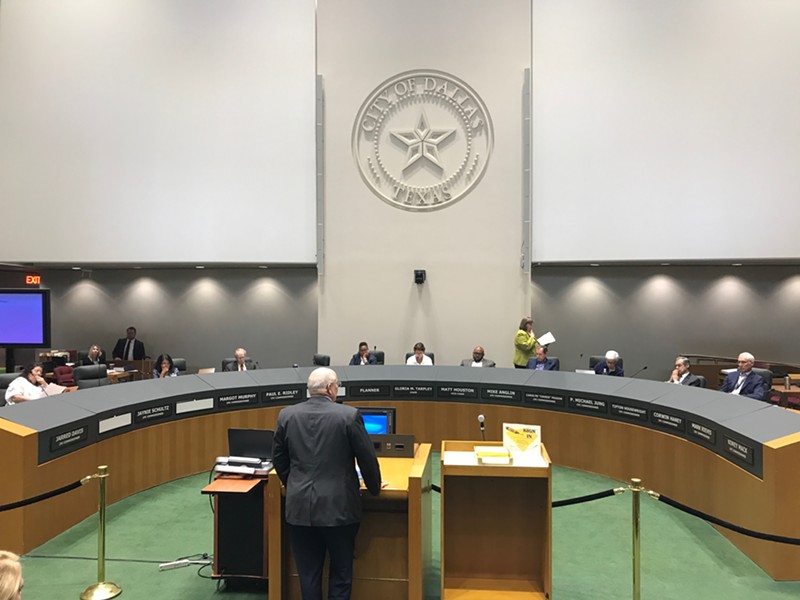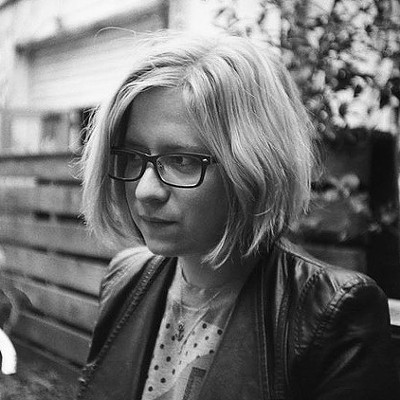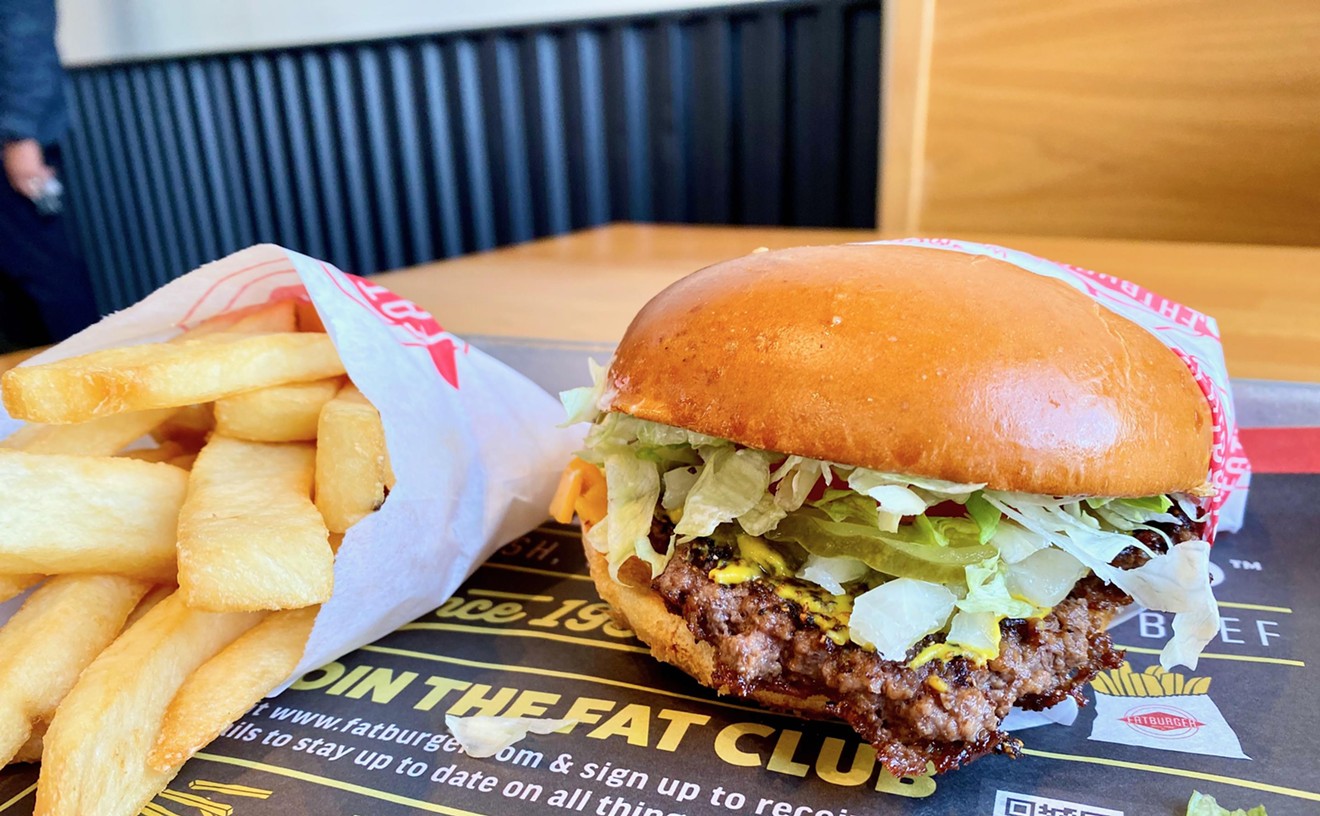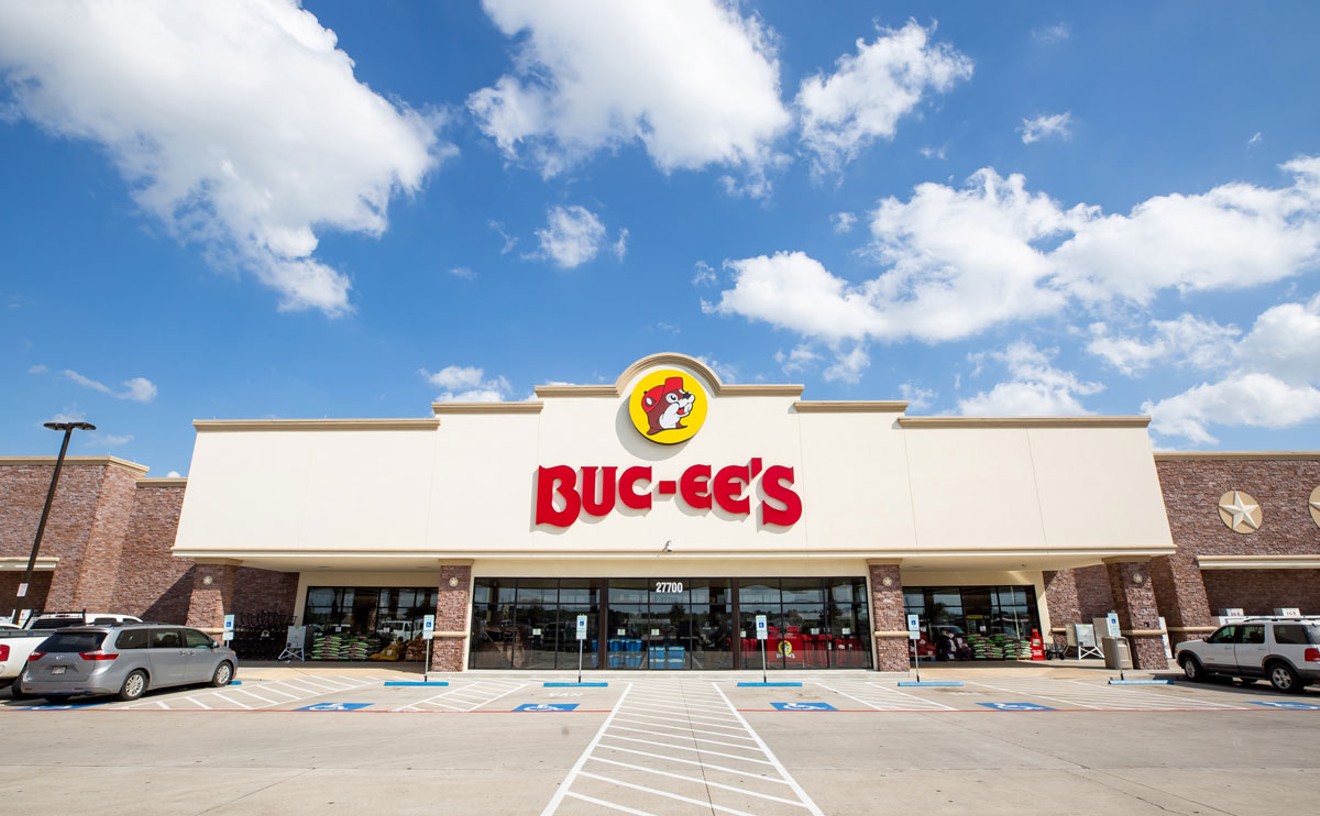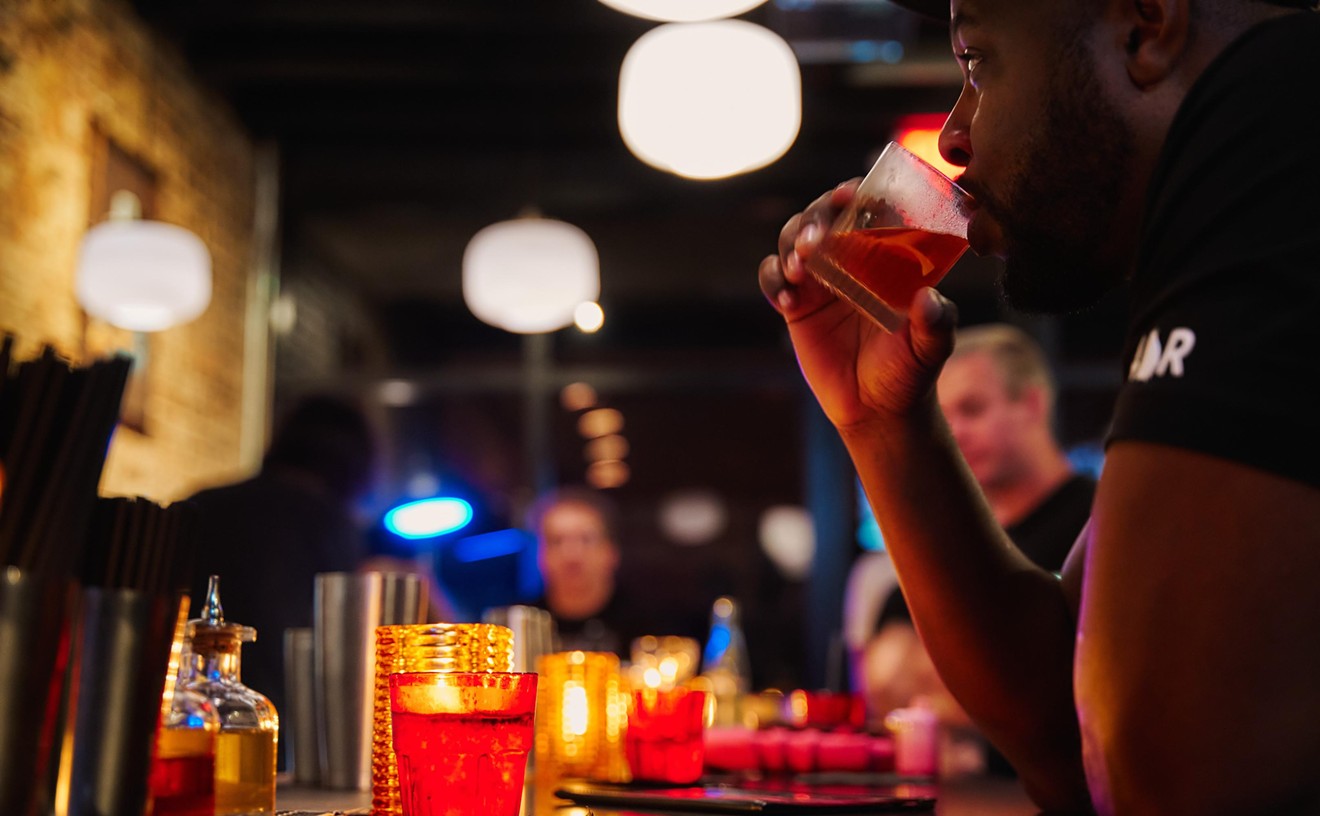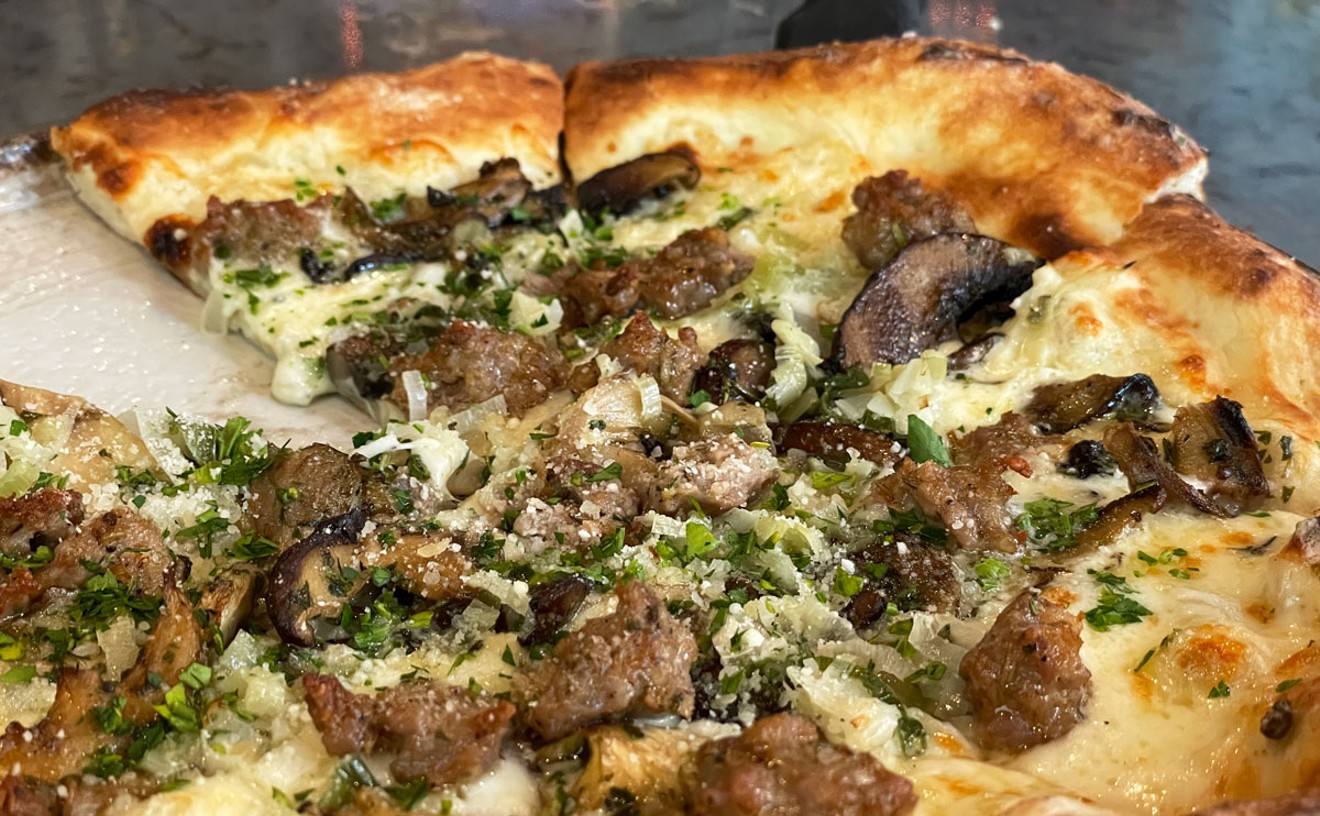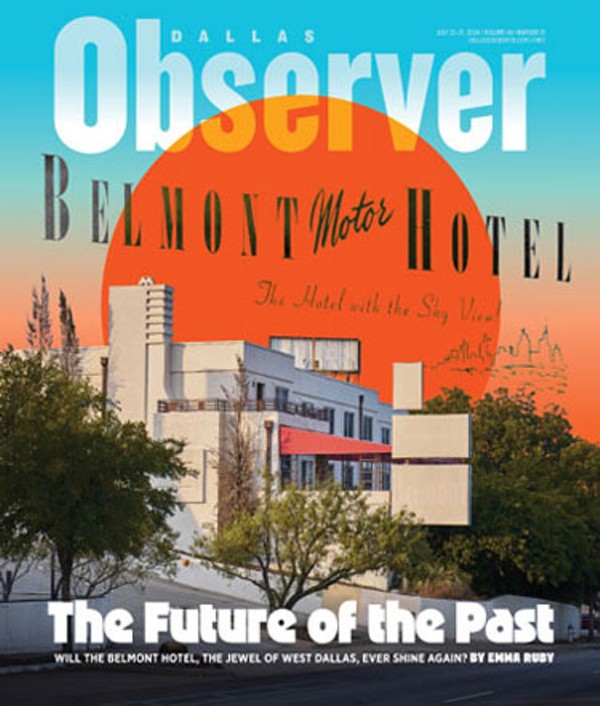Yesterday's City Plan Commission workshop on the late-hours overlay — a tool that, if implemented, could require bars, restaurants and retailers in certain parts of the city to apply for the privilege of staying open after midnight — was much like the half a dozen meetings and workshops that have come before it. City decision-makers peppered Diana Lowrance, senior planner for Sustainable Development and Construction Services, with questions while a room full of Dallas developers, restaurateurs and service industry professionals waited to speak.
The service industry has packed dozens of people into each of these meetings even when public comment isn't solicited. In meetings, at least, those in favor of the late-hours overlay tool are often outnumbered 10 to 1. At Thursday's workshop, leadership from the Dallas Black Chamber of Commerce, North Texas GLBT Chamber of Commerce, Greater Dallas Restaurant Association and Hotel Association of North Texas all expressed doubts about the late-hours overlay.
"Our concern is how it would impact hotels — specifically, how would you manage a hotel where you have to shut down your restaurant, your bar, your catering at midnight?" said Ken Benson, public affairs consultant with the Hotel Association of North Texas. "That’s gonna create a problem for hotels … who bring meetings into the city. Maybe this is a little too large of an instrument, particularly for what you’re trying to do."
If implemented, the late-hours overlay, when applied to a specific neighborhood — Uptown is first on the list — would require any new business to apply for additional permits in order to open between midnight and 6 a.m. Permits wouldn't just apply to alcohol-serving establishments; they would also affect restaurants, hotels and retailers such as gas stations and convenience stores.
John Hetzel with Madison Partners, a Dallas real estate developer, said that the potential for the overlay has been complicating attempts to make deals with bar and restaurant owners.
"When somebody calls me and inquires about leasing one of our buildings, I have to tell them they may not be able to operate after midnight," he says.
Members of the City Plan Commission grilled Lowrance about tools the city has available that may be of use before implementing late-hours overlays. One of those tools, resident parking only, is in use in neighborhoods such as Lower Greenville, where bar and restaurant traffic often overflows into the neighborhoods, causing nonlocal cars to take up all available street parking.
Lower Greenville instituted an RPO to help the issue, but as CPC board members learned Thursday, city parking services are grossly understaffed. At times, there are four parking services officers on duty to police the city's 57 RPO zones, according to Pamè La Ashford, program manager with the Dallas Police Department's Parking Services and Enforcement.
Another factor that decreases the efficacy of RPOs: The city rarely, if ever, tows violators, opting instead to give them $45 citations.
"One of the issues is that the city of Dallas has, for lack of a better term, a customer service policy where we don’t tow vehicles for first offenses and we don’t tow vehicles after hours," Ashford says.
After hours, which in this case means after midnight, is one of the biggest times for RPO violations in districts like Uptown.
Between an understaffed parking services department and the city's hesitance when it comes to towing — "It's city customer service policy because it is deemed traumatic to find your car missing," Ashford said — the RPOs may not be as effective as neighborhoods had hoped.
Despite the service industry workers and backers who did most of the speaking during the public comment portion of the meeting, there was one group of three people — representing a homeowners association in Uptown — who feel that something needs to change in their neighborhood. Anthony Luu, representing a 48-townhouse HOA, said a neighbor recently complained after a drunken person banged on his front door until the homeowner answered with a handgun.
"What we’re asking for is some sort of accountability to our neighbors, and I think that’s what, as a city, as a whole, that's what we should be striving for," Luu said. "Last Saturday night, we had somebody that was shot on McKinney. He was only shot in the leg, but what about next time?"
Thursday's workshop adjourned after two hours, and Gloria M. Tarpley, chair of the CPC, said there would likely be one more briefing, "probably in the month of September," at which time a vote may be taken. The city will likely solicit public comments at that meeting before voting.
[
{
"name": "Air - MediumRectangle - Inline Content - Mobile Display Size",
"component": "18855504",
"insertPoint": "2",
"requiredCountToDisplay": "2",
"watchElement": ".fdn-content-body",
"astAdList": [
{
"adType": "rectangle",
"displayTargets": "mobile"
}
]
},{
"name": "Editor Picks",
"component": "17105533",
"insertPoint": "4",
"requiredCountToDisplay": "1",
"watchElement": ".fdn-content-body",
"astAdList": [
{
"adType": "rectangle",
"displayTargets": "desktop|tablet"
},{
"adType": "rectangle",
"displayTargets": "desktop|tablet|mobile"
}
]
},{
"name": "Inline Links",
"component": "18349797",
"insertPoint": "8th",
"startingPoint": 8,
"requiredCountToDisplay": "7",
"maxInsertions": 25
},{
"name": "Air - MediumRectangle - Combo - Inline Content",
"component": "17105532",
"insertPoint": "8th",
"startingPoint": 8,
"requiredCountToDisplay": "7",
"maxInsertions": 25,
"watchElement": ".fdn-content-body",
"astAdList": [
{
"adType": "rectangle",
"displayTargets": "desktop|tablet"
},{
"adType": "rectangle",
"displayTargets": "desktop|tablet|mobile"
}
]
},{
"name": "Inline Links",
"component": "18349797",
"insertPoint": "8th",
"startingPoint": 12,
"requiredCountToDisplay": "11",
"maxInsertions": 25
},{
"name": "Air - Leaderboard Tower - Combo - Inline Content",
"component": "17105535",
"insertPoint": "8th",
"startingPoint": 12,
"requiredCountToDisplay": "11",
"maxInsertions": 25,
"watchElement": ".fdn-content-body",
"astAdList": [
{
"adType": "leaderboardInlineContent",
"displayTargets": "desktop|tablet"
},{
"adType": "tower",
"displayTargets": "mobile"
}
]
}
]

